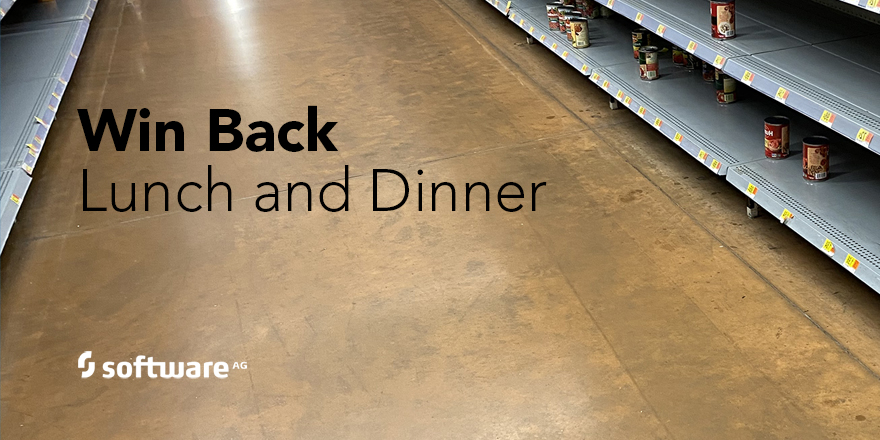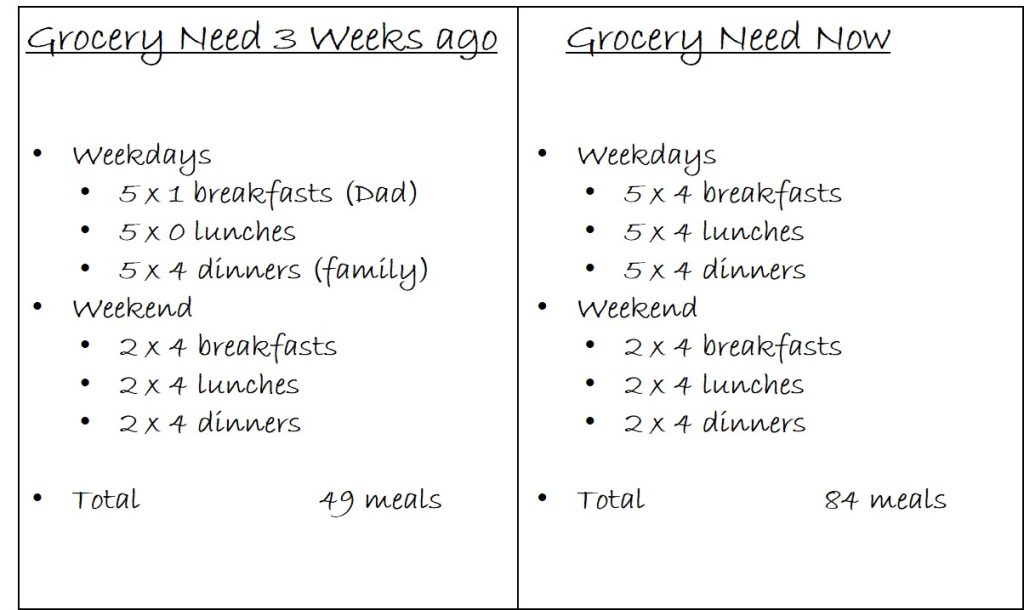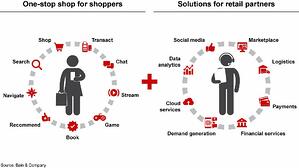Can Ecosystems Help Prevent Food Shortages?
There are times in history where new, innovative and “out of the box” thinking is required. This is one of those times – and accelerating the creation of and involvement in ecosystems could well be a fast track to becoming a truly connected enterprise.

Grocers have “won back lunch and dinner,” as per advice offered 15 months ago, but not quite in the way McKinsey envisioned.
The current pandemic is having a dramatic impact on grocery supply chains; with wide media coverage of shortages, empty shelves and queues. Demand is undeniably higher than normal, creating huge operational challenges with supply chain and home delivery capacity being a key constraint.
There have been suggestions of stockpiling, however additional sales of £1billion spread across 27 million UK households – or about £35 per household – suggests that this on its own is not the sole cause.
But if stockpiling is not to blame, then what is? Meal count is a big factor. Consider a typical family – two working parents and two school-age children who normally eat lunch at school and work. Today, the parents are working from home and the children are being home-schooled.
Three weeks ago, they bought food for enough for 49 meals each week from the supermarket. Now it is 84 meals – an increase of over 70%. The supermarket supply chain capacity has struggled to keep up with this additional demand – no wonder shelves are emptying fast.

Wholesalers who supply restaurants, hotels and caterers are struggling as their market is eliminated. Some have opened consumer-facing stores, but it is not that easy; wholesale pack sizes are not always suitable for households. As much as £20 million worth of short-shelf life food is currently in storage. At the same time, they have fleets of vehicles, trained staff and warehousing capacity that is now underutilized.
Imagine if grocers could easily access additional supply chain capacity – vehicles, warehouse space, home delivery capacity and perhaps even inventory or food hygiene trained staff. Not only could this help grocers with operational challenges but it could also provide a financial lifeline to some of the businesses so badly impacted by the pandemic.
A retail ecosystem has the potential to do just this. Linking together wholesalers, retailers, delivery providers and consumers through an ecosystem platform. I have long been a believer that ecosystems are a key evolution for retail and other consumer facing industries.
Consultant Bain argues the strength of ecosystem players describing them as
“one-stop shops for consumers… [that] offer all-in-one solutions to other vendors, supplying access to both customers and services, such as logistics, advertising, analytics and payments.”

This kind of collaboration has the potential to help address some of the current challenges faced by consumers and grocers. But it is highly dependent on the agnostic, timely and seamless movement of data both within and between organizations.
Like any crisis response, collaboration improves results. Ecosystems could offer a chance to utilize additional capacity in a manner that is completely elastic – increasing and decreasing as required.
There are times in history where new, innovative and “out of the box” thinking is required. This is one of those times – and accelerating the creation of and involvement in ecosystems could well be a fast track to becoming a truly connected enterprise.
Click the link below to find out how Software AG is helping customers create the truly connected enterprise, and benefit from living connections